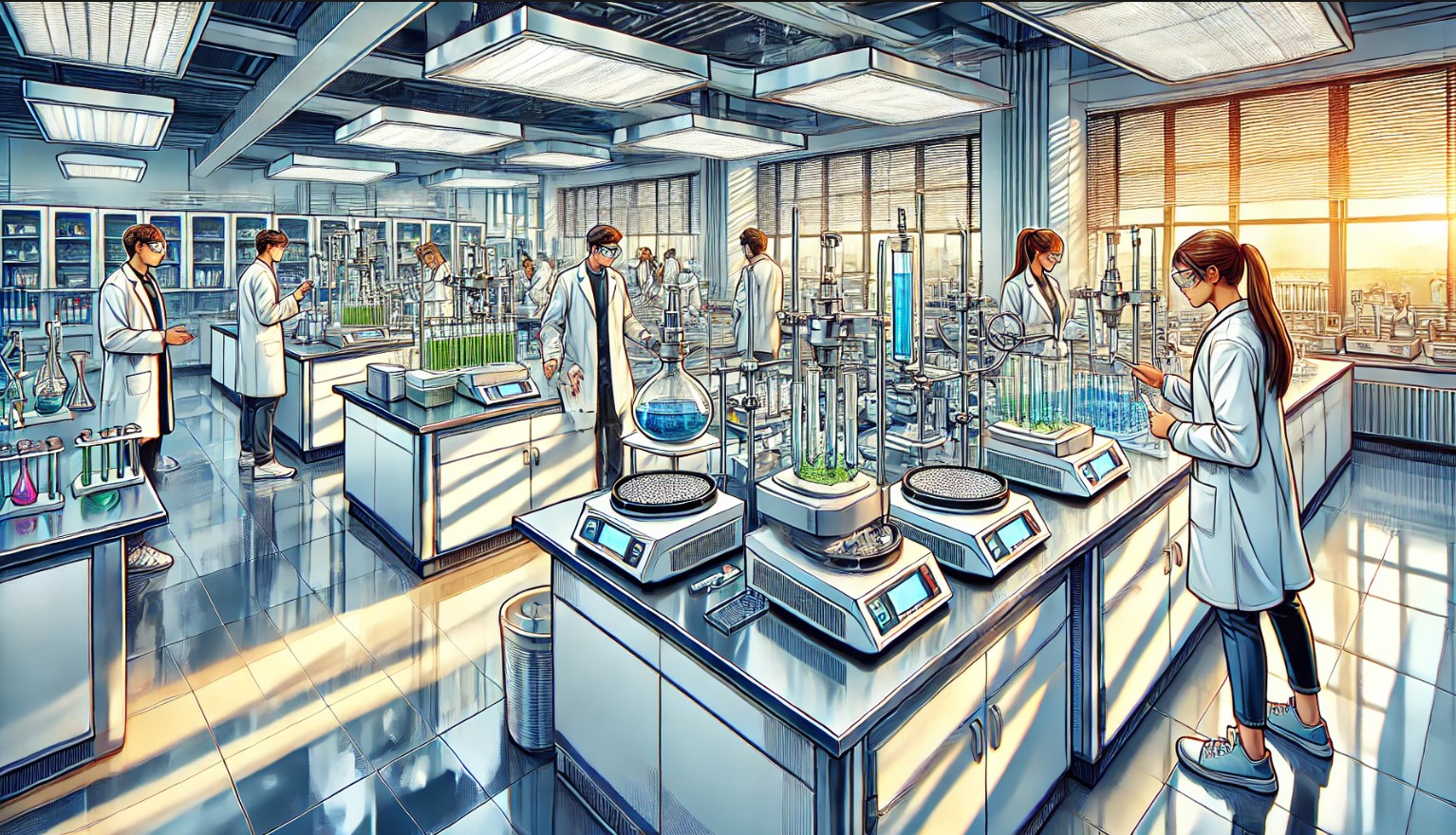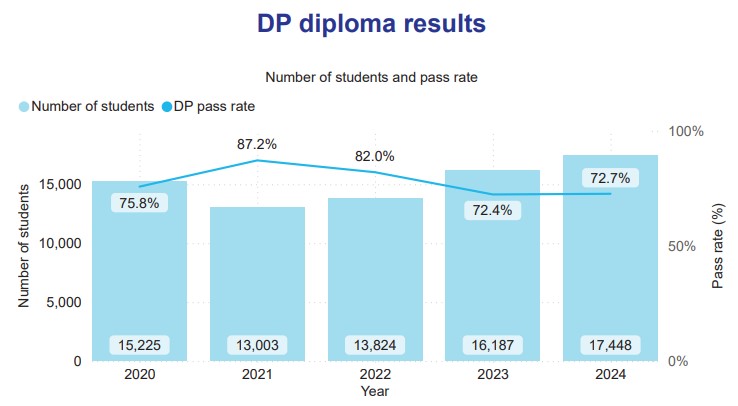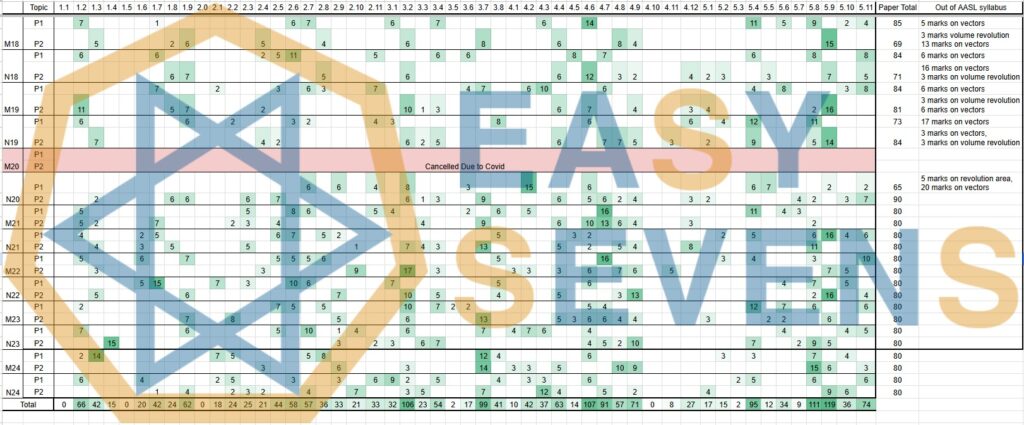Creating an Internal Assessment (IA) for the International Baccalaureate (IB) Chemistry course can feel overwhelming. However, selecting a unique, well-researched, and engaging idea can set your work apart and impress examiners. In this article, our IB Chemistry tutor will explore Chemistry IA ideas that are innovative, relevant, and aligned with current trends in 2025. Whether you are interested in environmental chemistry, pharmaceuticals, or sustainable energy, these topic will inspire you to craft an IA worth celebrating.
Why Choosing the Right IA idea Matters
The Chemistry IA is not just about conducting an experiment; it’s about showcasing your scientific thinking, creativity, and understanding of chemistry concepts. A well-chosen idea will:
- Engage Your Interest: When you’re passionate about your idea, it reflects in your work.
- Highlight Relevance: Examiners appreciate ideas that address real-world issues or emerging scientific trends.
- Showcase Depth: A unique idea allows you to explore chemistry in a meaningful and detailed manner.
To help you, here are some carefully curated idea topic that cater to various interests and skill levels.
1. Environmental Chemistry IA Ideas
Environmental issues are at the forefront of global conversations, making this a compelling area for your IA. Here are some specific topic:
1.1. Microplastics and Their Adsorption Properties
- Research Question: How do different types of microplastics adsorb heavy metals from aqueous solutions?
- Why It’s Impressive: This idea addresses the dual threats of microplastics and heavy metal contamination. It combines environmental chemistry with practical applications in water purification.
- Methodology: Compare adsorption rates by preparing solutions with microplastics of varying surface areas and analyzing the metal ion concentration using atomic absorption spectroscopy.
1.2. Degradation of Bioplastics Under Different Conditions
- Research Question: How do factors like temperature, UV light, and pH affect the degradation of bioplastics?
- Why It’s Impressive: Bioplastics are a hot idea in sustainable materials science. This study offers insights into their environmental longevity.
- Methodology: Use mass loss or infrared spectroscopy to evaluate chemical changes in bioplastics over time.
1.3. Assessing the Effectiveness of Natural Coagulants in Water Purification
- Research Question: How effective are natural coagulants like moringa seeds or chitosan in removing turbidity from water compared to alum?
- Why It’s Impressive: This idea blends green chemistry with practical applications for clean water.
- Methodology: Measure turbidity levels before and after treatment, and analyze the chemical interactions using spectrophotometry.
2. Sustainable Energy and Green Chemistry IA Ideas
The demand for sustainable energy solutions provides fertile ground for innovative IA topic. Here are some suggestions:
2.1. Comparing the Efficiency of Different Biofuels
- Research Question: How does the energy output of biodiesel compare to ethanol and biogas?
- Why It’s Impressive: This study aligns with global efforts to transition to renewable energy sources.
- Methodology: Use calorimetry to measure the energy released during combustion and calculate energy efficiency.
2.2. Catalyst Efficiency in Hydrogen Production
- Research Question: How do different catalysts affect the rate of hydrogen production during water electrolysis?
- Why It’s Impressive: Hydrogen is a key player in future energy systems, and this idea explores its production efficiency.
- Methodology: Compare reaction rates using various catalysts like platinum, nickel, or cobalt under identical conditions.
2.3. The Role of Metal Organic Frameworks (MOFs) in Carbon Capture
- Research Question: How effective are MOFs in adsorbing carbon dioxide under varying pressure and temperature conditions?
- Why It’s Impressive: MOFs are cutting-edge materials in carbon capture technology, a crucial field for combating climate change.
- Methodology: Measure adsorption rates using gravimetric analysis or gas chromatography.
3. Pharmaceutical and Biomedical Chemistry IA Ideas
Pharmaceutical chemistry offers diverse possibilities to explore therapeutic compounds and their interactions. Here are some topic:
3.1. Antioxidant Properties of Natural Substances
- Research Question: How do the antioxidant properties of green tea extract compare to synthetic antioxidants like BHT?
- Why It’s Impressive: This idea combines health science with analytical chemistry techniques.
- Methodology: Use DPPH assays or UV-Vis spectroscopy to measure antioxidant activity.
3.2. pH Stability of Common Painkillers
- Research Question: How does pH affect the stability and solubility of common painkillers like aspirin and paracetamol?
- Why It’s Impressive: This study links pharmaceutical chemistry with practical considerations for drug storage and formulation.
- Methodology: Monitor degradation using UV-Vis spectroscopy or high-performance liquid chromatography (HPLC).
3.3. The Effect of Temperature on Enzyme Activity in Digestive Aids
- Research Question: How does temperature affect the activity of enzymes like amylase or protease in over-the-counter digestive supplements?
- Why It’s Impressive: This idea bridges chemistry with biology and has real-world implications for health.
- Methodology: Measure reaction rates by monitoring substrate concentration using spectrophotometry.
4. Advanced Analytical Chemistry IA Ideas
Analytical techniques are foundational in chemistry and offer endless possibilities for precise and impactful IA ideas.
4.1. Quantifying Vitamin C Content in Fresh vs. Packaged Juices
- Research Question: How does vitamin C concentration differ between fresh orange juice and commercially packaged juices?
- Why It’s Impressive: This study blends food chemistry with consumer science, making it relatable and impactful.
- Methodology: Conduct a redox titration using iodine to determine ascorbic acid content.
4.2. Identifying Food Dyes in Candies Using Chromatography
- Research Question: What types of food dyes are present in commercial candies, and how do their concentrations compare?
- Why It’s Impressive: Food safety and regulation is a growing concern, and this idea uses advanced techniques.
- Methodology: Utilize thin-layer chromatography (TLC) or HPLC for dye separation and quantification.
4.3. Determination of Hard Water Levels Across Local Water Sources
- Research Question: How do calcium and magnesium ion concentrations vary among local water sources?
- Why It’s Impressive: Water hardness is a practical issue with everyday implications.
- Methodology: Perform a complexometric titration using EDTA to measure ion concentrations.
5. Unique and Creative Chemistry IA Ideas
For those looking to stand out, here are some unconventional and creative topic:
5.1. The Chemistry of Glow Sticks
- Research Question: How does temperature affect the intensity and duration of glow sticks?
- Why It’s Impressive: This fun and engaging idea demonstrates the real-world application of chemical kinetics.
- Methodology: Measure light intensity at different temperatures using a lux meter.
5.2. DIY Sunscreen Effectiveness
- Research Question: How does the SPF of homemade sunscreens compare to commercial products?
- Why It’s Impressive: With the rise of DIY culture, this idea is both timely and practical.
- Methodology: Measure UV absorption using a spectrophotometer.
5.3. The Impact of Salt on Ice Melting Rates
- Research Question: How does the type of salt (e.g., NaCl, KCl, CaCl2) affect the melting rate of ice?
- Why It’s Impressive: This accessible yet scientifically rich idea explores colligative properties and freezing point depression.
- Methodology: Measure melting rates at controlled temperatures and compare results.
Conclusion
Choosing the right idea for your Chemistry IA can make the difference between a routine project and one that truly impresses your examiner. By focusing on current trends, applying innovative methods, and addressing real-world challenges, you can craft a standout IA. Remember, the key is to select a idea that excites you while showcasing your ability to think critically and conduct rigorous scientific research.
Chemistry IA Ideas FAQ
Start by identifying your interests within chemistry. Look for topics that are relevant, feasible, and offer room for detailed investigation. Consider current trends, such as sustainability or pharmaceutical advancements.
Research existing IAs and avoid overused topics. Combine ideas creatively or focus on niche areas to develop a fresh perspective.
An impressive IA topic is relevant, innovative, and demonstrates a clear connection to real-world applications. It should also allow you to apply advanced techniques or explore cutting-edge concepts.
Yes! Computational chemistry, such as molecular modeling or quantum simulations, can add depth to your investigation. Ensure you explain the methods clearly and analyze results thoroughly.
Safety is critical. Include a detailed risk assessment in your write-up and follow proper laboratory protocols to ensure both safety and professionalism.




